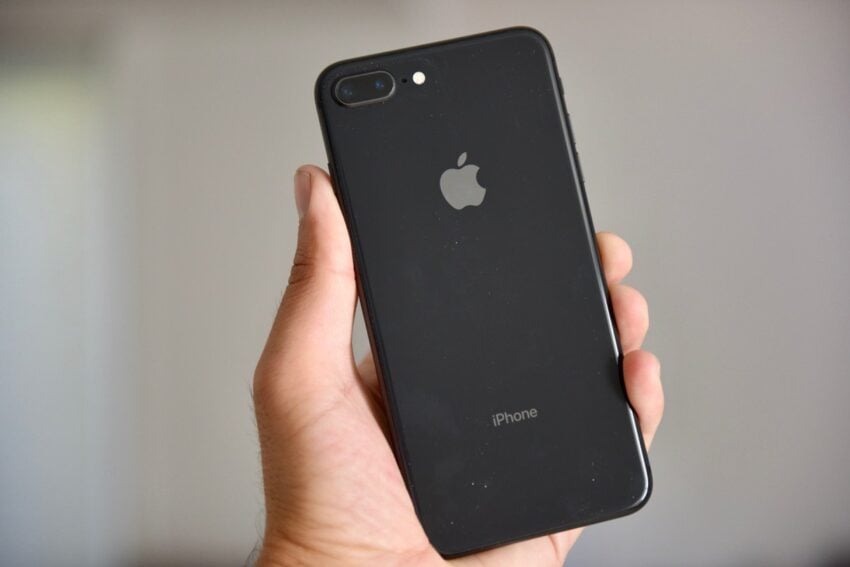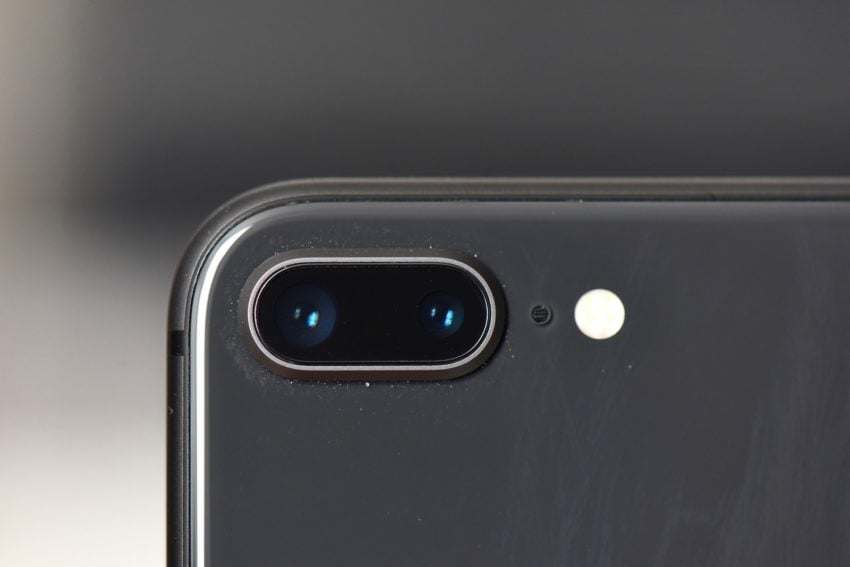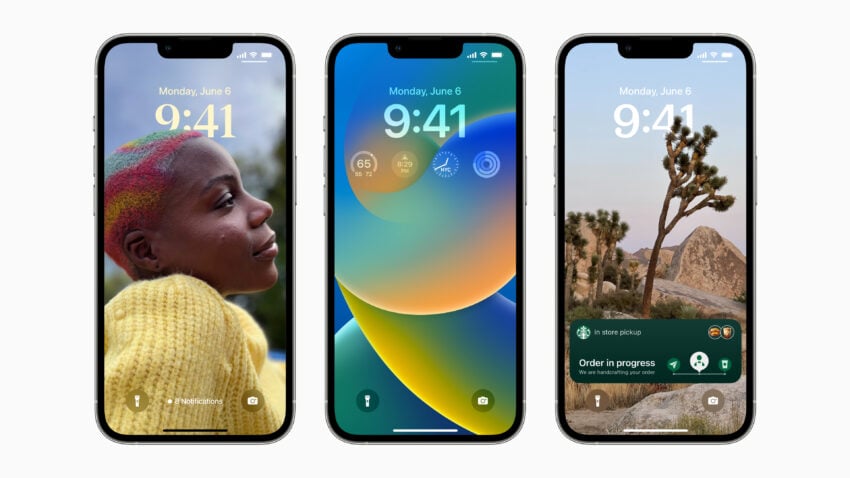iPhone 8 Problems: 5 Things You Need to Know is a post by Adam Mills from Gotta Be Mobile.
iPhone 8 and iPhone 8 Plus owners are dealing with a variety of problems including Bluetooth issues, sound problems, and a whole lot more.
Many iPhone 8 users are reporting issues with Apple’s hardware and the iOS 16 software that powers the two devices. We expect the list of problems to grow as more people buy the iPhone 8 and iPhone 8 Plus and as Apple releases additional iOS updates throughout the year.
This guide will take you through the current list of iPhone 8 problems. It will also provide you with some resources that will come in handy if you start noticing issues with your iPhone 8 or iPhone 8 Plus.
It also includes a look at what to expect from Apple and the next version of iOS 16.
iPhone 8 Problems
Apple’s latest version of iOS 16 is causing problems for some iPhone 8 and iPhone 8 Plus users.

We’re hearing about Wi-Fi issues, Bluetooth connectivity issues, problems with first and third party apps, Touch ID and 3D Touch problems, restore problems, abnormal battery drain, iCloud issues and a variety of other bugs and performance issues.
Problems can popup at any time so you’ll want to be as prepared as possible. We recommend periodically backing up the files on your phone to keep them safe.
We’ve released an installation guide that will take you through some things to do before installing new iOS software on your device.
Where to Find Feedback
If your iPhone 8 or iPhone 8 Plus is struggling, you’ll want to dig into feedback and fixes from fellow users. Here are a few places to do that.
We recommend keeping an eye on YouTube, Apple’s discussion forums, social media sites like Twitter/Facebook, and the MacRumors forums for feedback about the iPhone 8’s hardware and the latest version(s) of iOS 16.
If you’re thinking about moving your phone to iOS 16, or if you’ve already done so, take a look at our guide that covers the latest version of that software.
How to Fix iPhone 8 Problems
If you run into problems with the iPhone 8 or iPhone 8 Plus your first thought might be to take it back to Apple or the place where you bought it. Before you do that you should try fixing the issue from home.

Before you take your phone down to an Apple Store, take a look at our list of fixes for common iPhone problems.
We’ve also put together some tips to help you improve your iPhone 8’s overall performance and a guide to improving iPhone 8 battery life.
If you can’t find a fix in those guides make sure you check Apple’s discussion forums. There are a lot of knowledgable active users and you could get a solution to your problem within minutes.
You can also get in touch with Apple on Twitter and see if its support crew can help. You can also get in contact with Apple Support via the company website.
If Apple’s customer service can’t help you solve whatever it is that’s plaguing your iPhone 8 or iPhone 8 Plus, it’s time to take your phone to an Apple Store (if one is close by and open) or your local carrier store.
Make a Genius Bar appointment and have them run diagnostics on your device to see if they can pinpoint the problem. Your iPhone 8 is under warranty so they might offer you a replacement if the issue is serious.
How to Downgrade Your iPhone 8
If you recently downloaded an iOS update on your iPhone 8 or iPhone 8 Plus and you start noticing issues, you might be able to downgrade back to an older version of iOS. Downgrading isn’t guaranteed to fix the issues you’re seeing, but it’s certainly an option if your device is underperforming.
Apple typically keeps the downgrade process open for a few weeks after it releases a new version of iOS so you’ll need to act quickly if you want to move back.
For more on the iOS downgrade, please take a look at our guide.
What’s Next
If your iPhone 8 or iPhone 8 Plus is struggling, you might be on your own for a bit.
iOS 16.6 was the last known update in Apple’s iOS 16 pipeline so it’s unclear when a new version will roll out to the iPhone 8 and iPhone 8 Plus.
Neither device will make the move to iOS 17 in the fall which means both iPhone 8 variants will stay put on iOS 16. We expect Apple to push new iOS 16 software, but the software will likely contain security patches and not much else.
Install iOS 16.6 for Better Security |
||||||||||||||||
 |
||||||||||||||||
|
If security is important to you, think about installing Apple's iOS 16.6 update on your iPhone right away. The iOS 16.6 update delivers 16 security patches and they're important if you want to keep your iPhone protected from harm. For more information about the changes, check out Apple's rundown. As for older software, iOS 16.5.1 brought two security patches to iPhone users If you want to learn more, head on over to Apple's website. The company's iOS Security Response 16.5.1 (c) update also included a security update and you can learn more about it right here. iOS 16.5 brought a ton of security patches to the iPhone. You can find out more about them over on Apple's security site. iOS 16.4.1 included two security upgrades . You can learn more about the pair right here. Apple's iOS 16.4 update had a substantial number of patches on board. You can read about them in detail over on Apple's security site. The iOS 16.3.1 update had three security patches on board including one for an actively exploited vulnerability. For more on the security contents of iOS 16.3.1, check out Apple's security page. iOS 16.3 brought 10+ new security patches with it and you can learn more about all of those right here. In addition, the software came with support for physical security keys for Apple ID. These will beef up your account security by requiring a physical security key as part of the two factor authentication sign in process. Learn more about the change right here. If you skipped iOS 16.2, you'll get its changes with iOS 16.6. iOS 16.2 brought a ton of important security patches with it and you can dig into the details on Apple's security site. The update also brought end-to-end encryption to iCloud, iMessage, iPhone backups, Notes, Photos, and more. If you want to learn more about it, head over to Apple's guide. If you decided to missed iOS 16.1.2, you'll get its solitary security patch with your upgrade. Learn more about it right here. If you skipped iOS 16.1.1, you'll get its security patches when you upgrade. You can learn more about them right here. If you missed the iOS 16.1 update, it brought 19 security patches to the iPhone and you can learn about the particulars of those over on Apple's website. If you failed to download iOS 16.0.3, it had one security patch on board, a fix for a potential exploit within the Mail app. For more about the fix, check out Apple's security site. If you're still running iOS 15 your iPhone, you'll get a bunch of other patches when you upgrade. iOS 16.0 brought a ton of security patches to the iPhone. If you're interested in the exact nature of these improvements, you can read about them over on Apple's security website. In addition to those patches, iOS 16 brings some additional enhancements to privacy and security including Safety Check which, according to Apple, will help "people in domestic or intimate partner violence situations review and reset the access they’ve granted others." The feature also resets system privacy permissions for apps and restricts Messages and FaceTime to the device on hand. Apple's also made some improvements to Passkeys in Safari. iOS 16 brings a brand new sign-in method that's end-to-end encrypted and safe from phishing and data leaks. |
||||||||||||||||
|
||||||||||||||||
iPhone 8 Problems: 5 Things You Need to Know is a post by Adam Mills from Gotta Be Mobile.















0 Commentaires